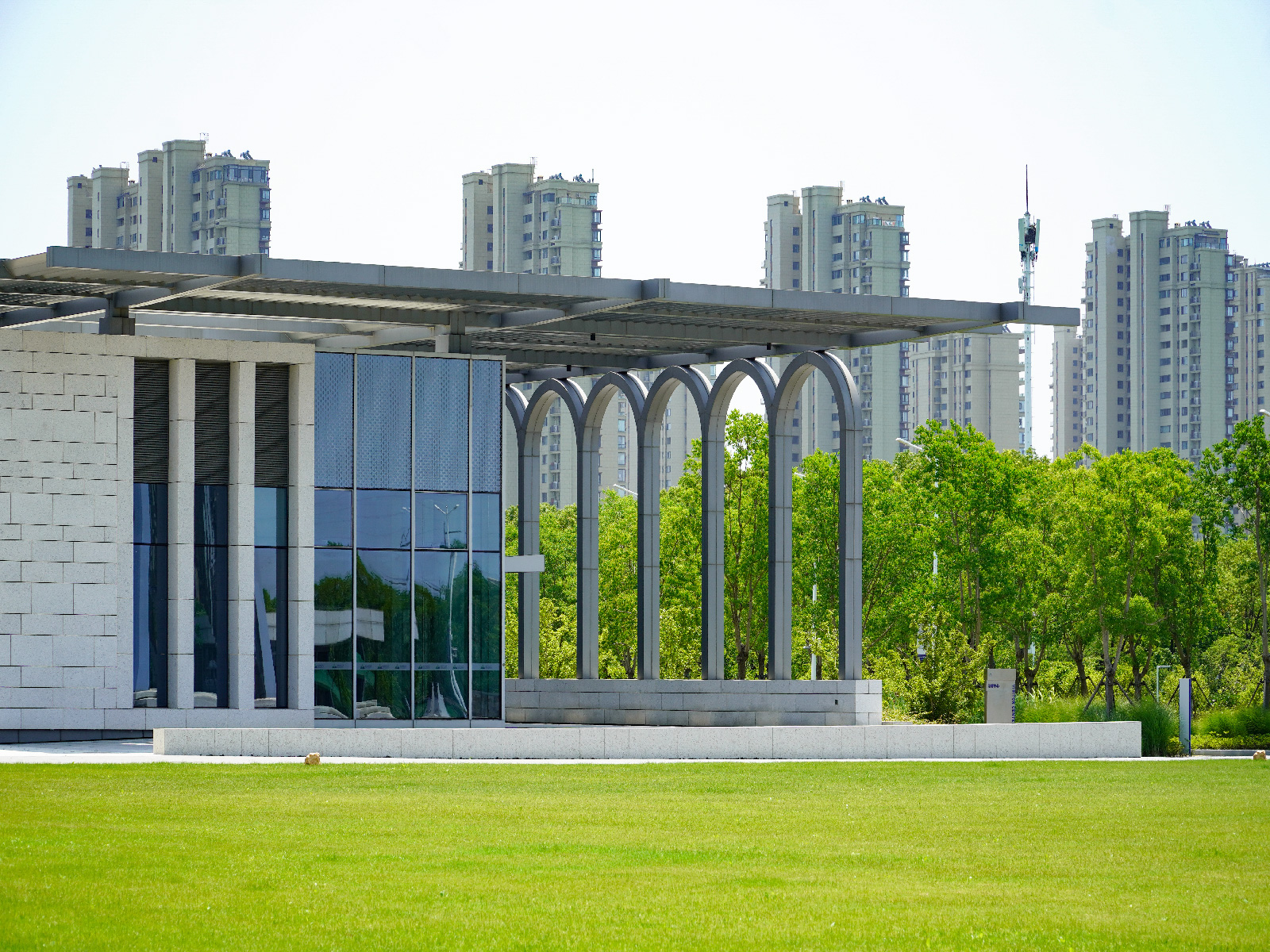
Sustainability is a key focus of education and curricular innovation at DKU. First, all undergraduate students at DKU are required to take the Common Core course Global Challenges in Science, Technology, and Health, which focuses on climate change and global health. Second, a large number of courses are offered that focus on environment and sustainability, and even more courses, such as Digital Humanities, Public Speaking, Computational Microeconomics, or Machine Learning for Social Science have incorporated sustainability as a key topic.
Third, a new course, Let’s Talk About Climate Change, was developed 2024 by 19 DKU professors from various disciplines. Led by Associate Dean for Interdisciplinary Initiatives, Prof. James Miller, and inspired by a course of the same name at Duke University, it has attracted over 150 students and set a new enrollment record at DKU.
Fourth, at the graduate level, DKU offers two master’s programs focused on sustainability: the International Master of Environmental Policy and the Master of Science in Global Health. Both programs feature curricula tailored to students passionate about addressing two of the world’s most pressing challenges, which are the environment and health.
Finally, DKU has stablished a wide range of applied learning opportunities, including field trips, community-based learning programs, and external partnerships such as the Future17 program, which are introduced in the sections below.
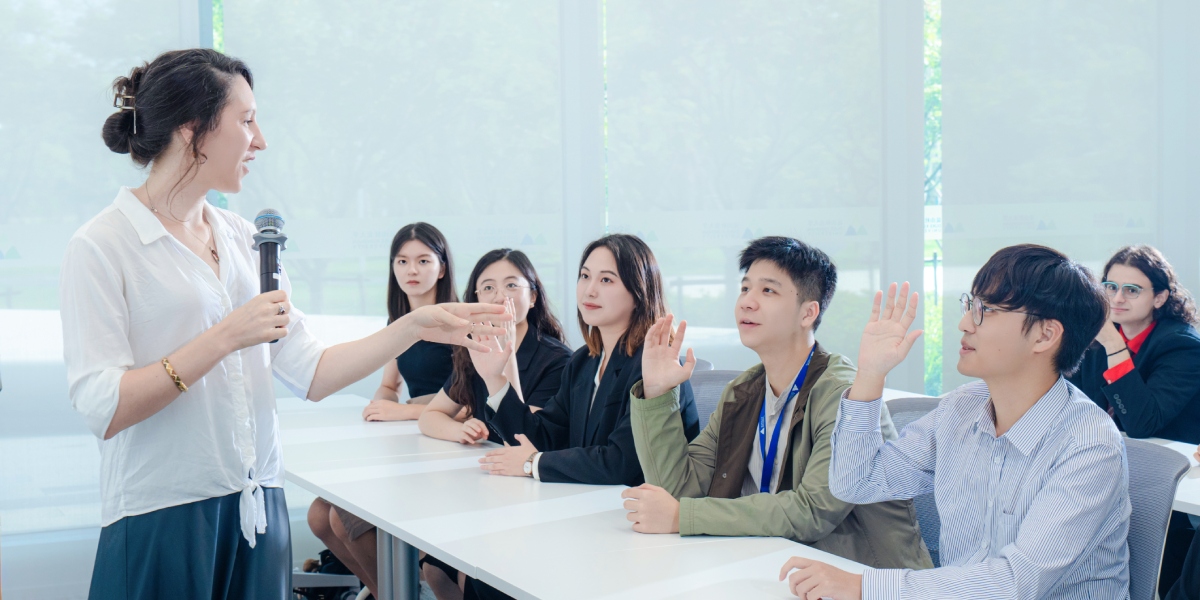
DKU currently offers a range of courses which are directly related to climate change, the environment, conservation, energy, Earth, and sustainability. These classes come from a wide range of disciplines, from natural and applied sciences to social sciences and the arts and humanities, which shows just how broad and interconnected environmental issues really are.
In the list below, each course is presented along with faculty information.
Courses offered in the International Master of Environmental Policy Program are accessible https://env.dukekunshan.edu.cn/academics/academic-program/courses/
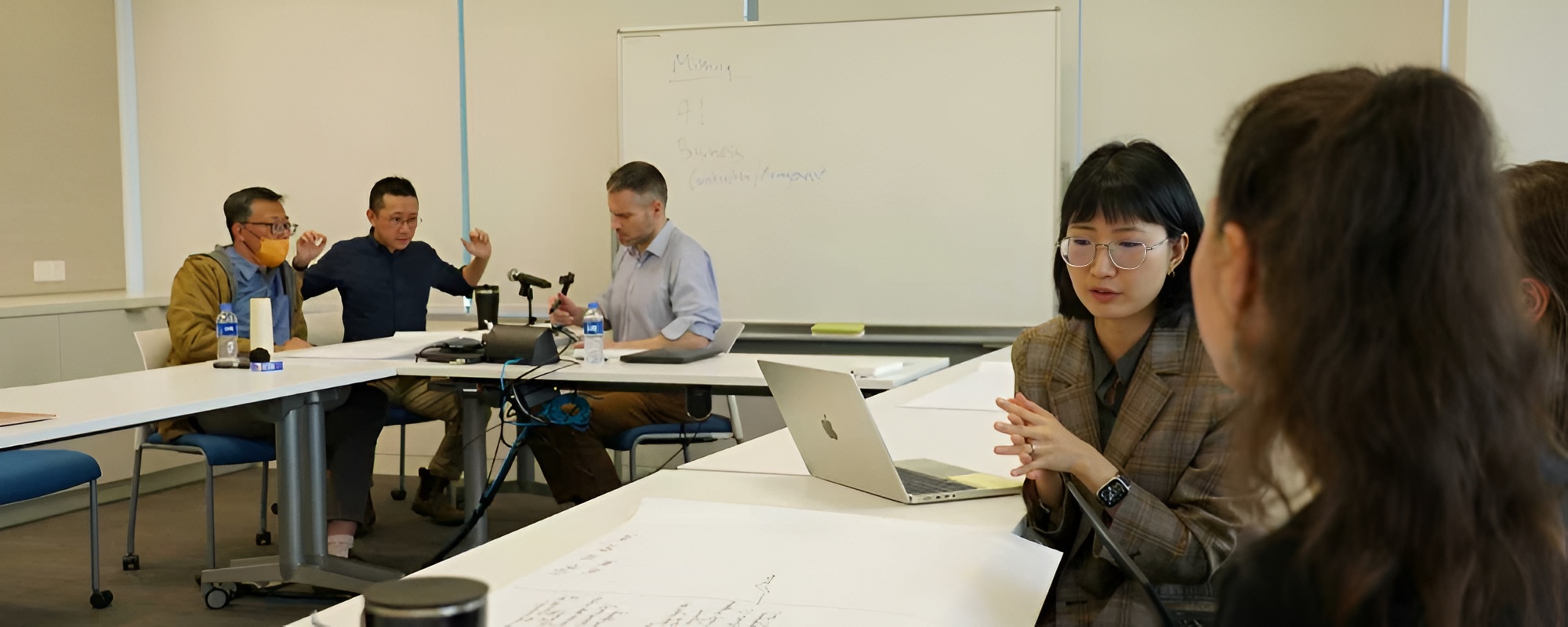
In Fall 2024, DKU kicked off a brand-new interdisciplinary course titled “Let’s Talk About Climate Change,” which set a new enrollment record of over 150 students. Open to all undergrads, this 14-week course brings together 19 professors from different fields to spark conversations about climate change from a wide range of perspectives. The topics covered everything from how math helps measure the causes and effects of climate change, to the biological, social and ethical issues it raises, and even how it connects with religious beliefs. Climate change affects everything and demands a consolidated approach across disciplines.
The goal of this course is to empower DKU students to engage in discussions about climate change, explore potential solutions, and to understand how it will reshape the world and affect their daily lives. One of the unique features of this course is that there are no tests, exams, or grades. Instead, students hear from DKU professors about how climate change is transforming their respective fields, and then discuss among themselves how this will impact their thoughts and actions.
For Thanksgiving, students left the campus and shared a home-style meal at a local organic farm while listening to a lecture on climate-smart agriculture by Prof. Chuanhui Gu.
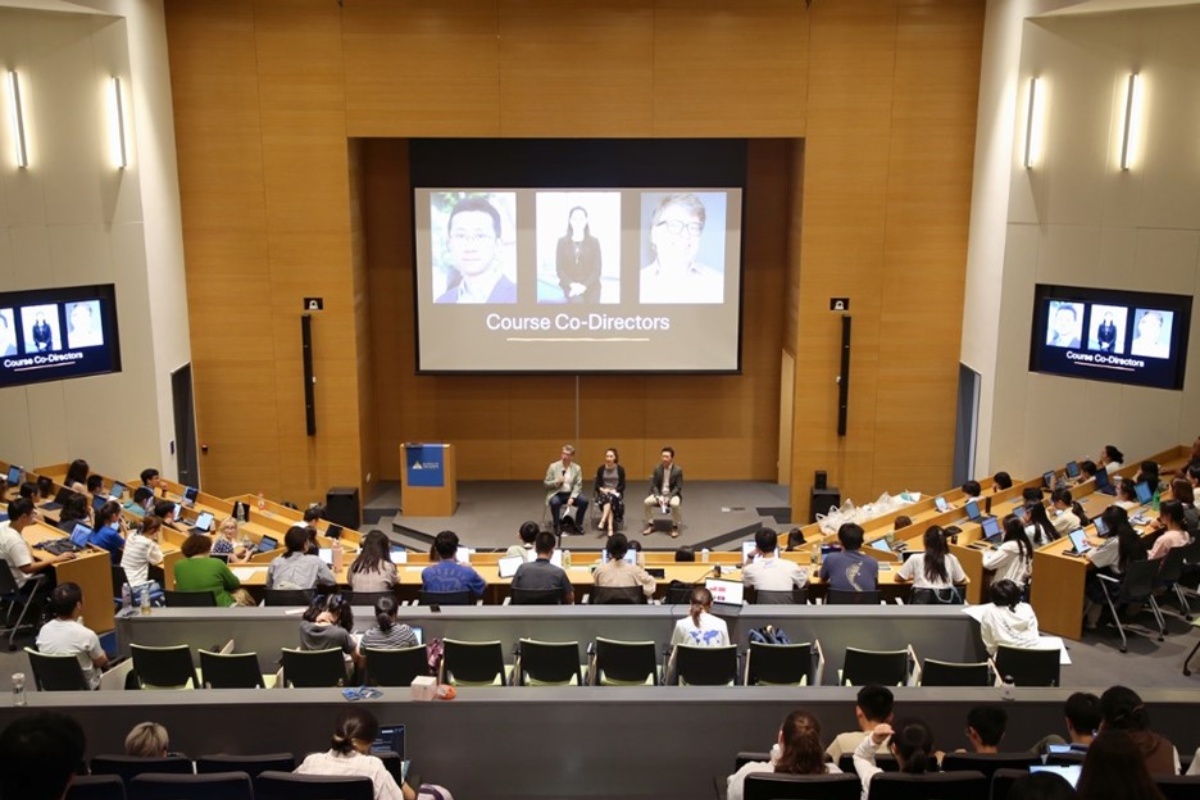

In 2024, DKU joined the Future17 SDG Challenge Program, a global initiative led by Quacquarelli Symonds (QS) and the University of Exeter. This program brings together some of the world’s top universities to help students develop the skills they need to create real solutions that support the United Nations Sustainable Development Goals (SDGs).
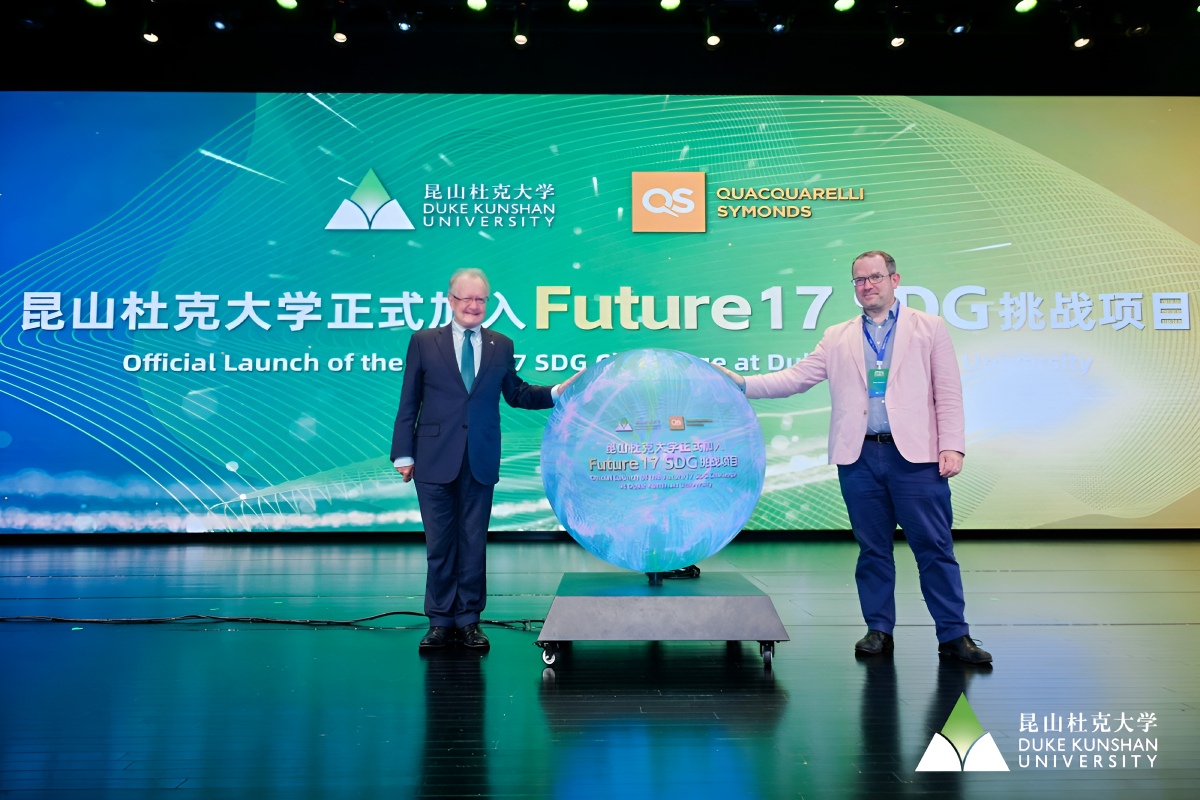
The Future17 SDG Challenge gives DKU students a chance to join international teams of students to work together on real-world projects for partner companies and organizations from around the world and come up with innovative solution to the SDG-related problems they face, using an interdisciplinary and multicultural approach. They collaborate closely with these partners to understand their needs and help align their goals with the bigger global sustainable development paradigm, under the guidance of mentors from partner universities and industry professionals. Led by the Innovation and Entrepreneurship Initiative at DKU, the Future17 SDG Challenge has already engaged two cohorts of competitively selected students from various majors in 2024-25. Students completed 11 projects focused on important topics like marine soil cleanup, global education equity, environmental change, and health.
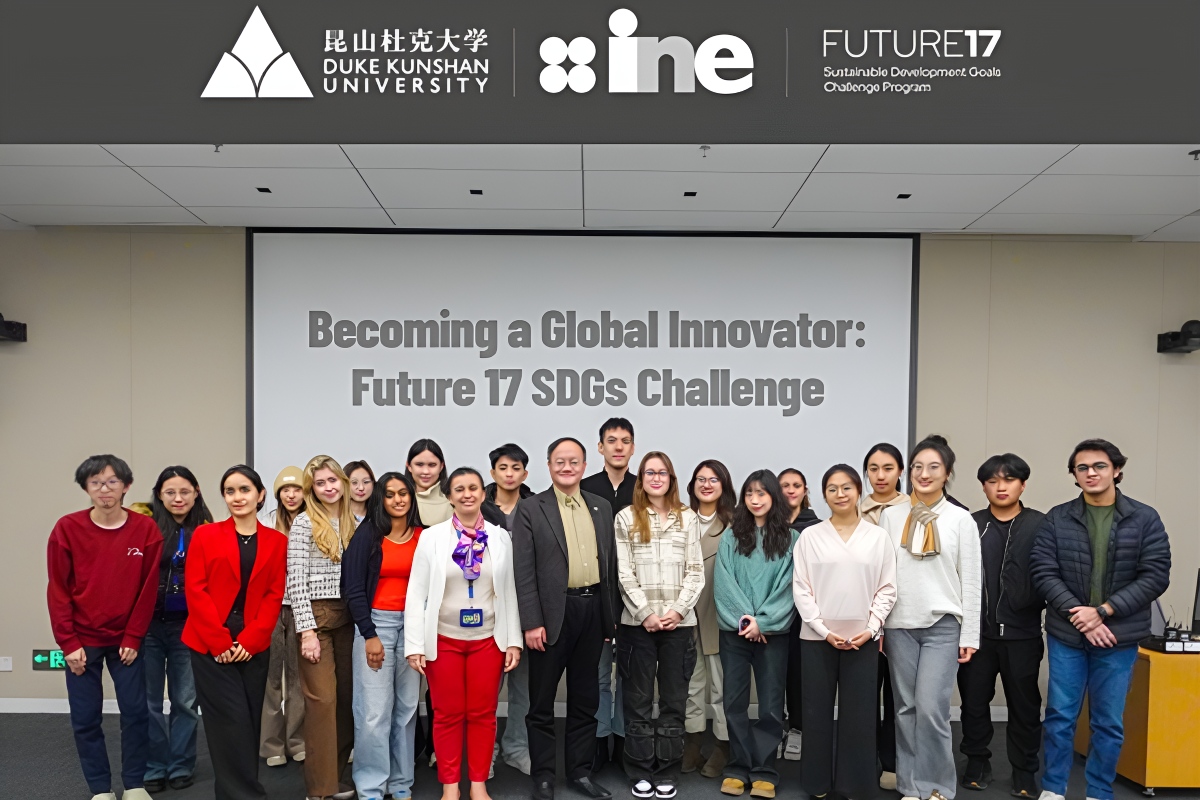
At DKU, each undergraduate student is required to complete a Signature Work (SW) project before graduating. Students must identify an area of interest, a problem, or a question they wish to explore further, and conduct research on this topic by drawing from both classroom learning and co-curricular experiences.
In 2025, out of 332 SW projects submitted, 50 were directly related to climate, environmental, and sustainability issues, accounting for approximately 15% of the total. 56 more projects explored issues such as public health, inequality, rural development, and governance - topics that significantly impact the sustainability of human development. Altogether, about 32% of SW projects from the Class of 2025 addressed themes connected to the SDGs. Among the 36 SW Distinction Projects awarded, several focused on topics such as climate governance and the role of youth, outdoor spaces, healthy aging, soil safety and its implications, and sustainable farming.
The list below introduces the projects and the issues they investigated.
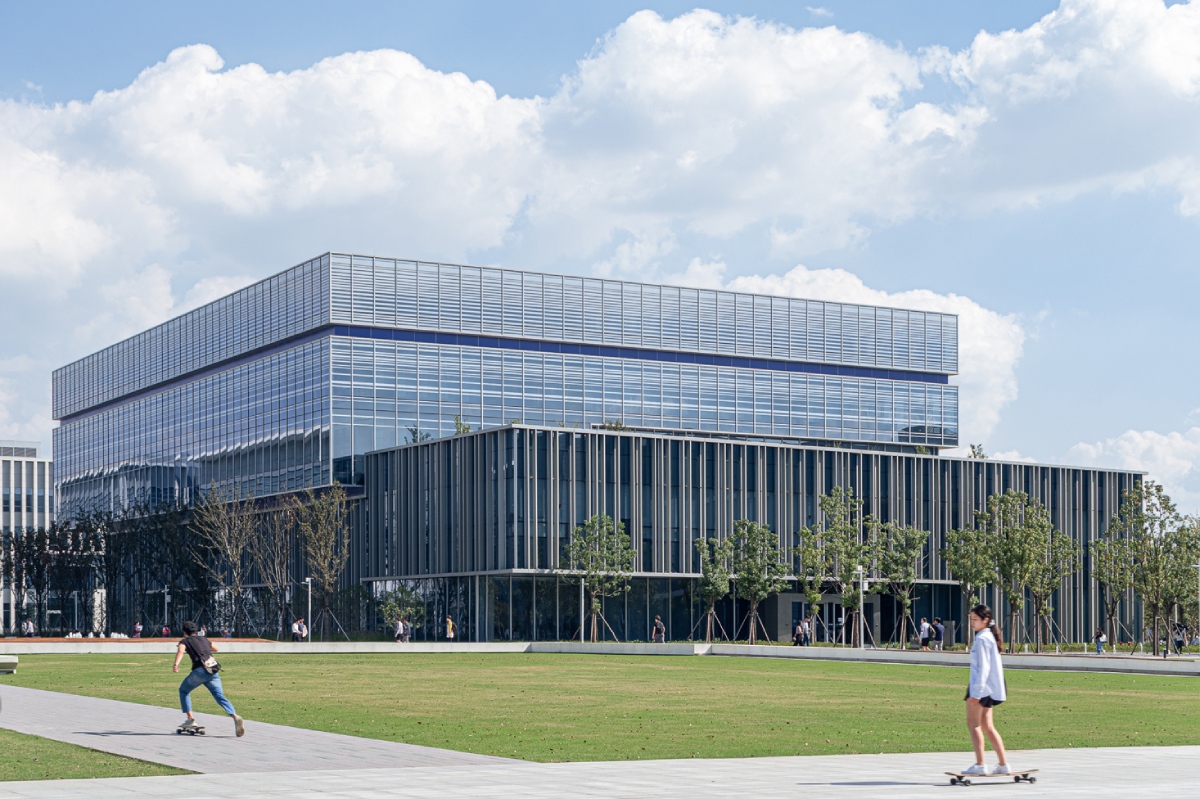
As part of the graduation requirements for all master’s students in the International Master of Environmental Policy (iMEP) program, each student is required to complete a Master’s Project (MP). It can be completed individually or as part of a group and is categorized into two types: client-based or research-based. These options are designed to prepare students for their future careers, whether they plan to work in the industry or pursue further studies through a PhD program.
The 2025 iMEP cohort submitted MPs covering a wide range of environmental topics, including renewable energy, the agricultural spillover effects of China’s expanded ecological red lines, socio-economic transitions after the phase-out of coal, biodiversity conservation, and more. Together, these projects offer insightful perspectives on a range of environmental issues.
MPs are usually published by the Duke Library, and can be accessed here:
Independent Studies at DKU give students the chance to earn course credit by diving into research on a topic they are passionate about, with the support and guidance of a faculty mentor. It is a great way to explore your interests more deeply while also building strong connections with professors.
In the 2024–2025 academic year, out of 227 Independent Study projects, 45 were directly related to environmental topics, accounting for approximately 20% of all supervised projects. Another 54 projects tackled important SDG-relevant issues like health science, animal welfare, social welfare, elderly care, and more. In total, around 44% of all Independent Studies were related to the SDGs. These projects, listed below, used a mix of methods, techniques, and disciplinary perspectives. It is a clear sign of the strong interest and dedication DKU students and faculty have when it comes to creating a more sustainable future.
Sustainability and Climate Applied Learning (SCAL) is an educational approach that transforms the campus and surrounding communities into living classrooms or labs. Rather than relying solely on textbooks, this teaching model enables students to collect real-world data, and work on real-life projects that engage directly withsustainability issues in their local environment and by collaborating with nearby communities.

In courses such as Food Ecology offered at DKU, students may explore sustainable farming practices by observing daily operations in the DKU Community Garden, where the use of chemical fertilizers is prohibited and only organic pesticides are applied. This hands-on experience provides students with valuable insights into sustainable food production within their local environment. It also offers opportunities to interact with DKU gardeners and engage in meaningful discussions about creating sustainable food systems.
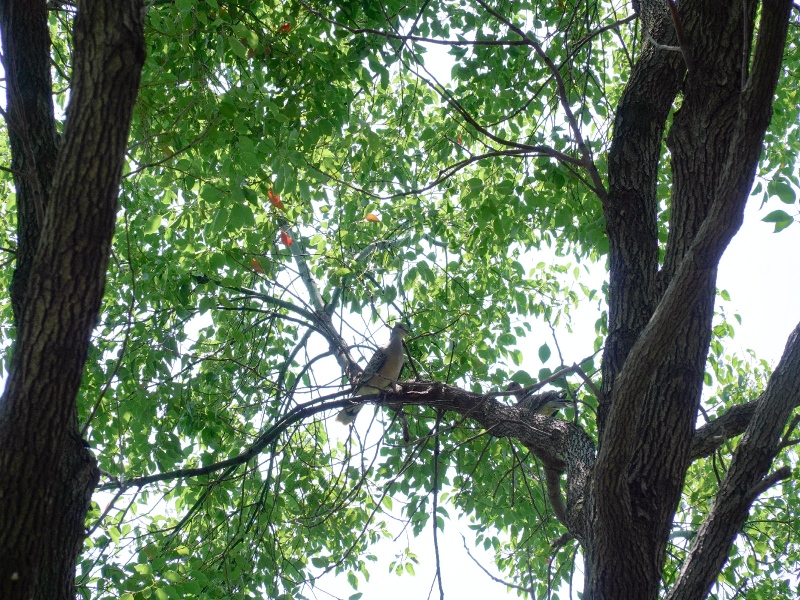
DKU’s campus also supports applied learning in conservation and biodiversity. The presence of migratory birds, and occasional instances of bird-window collisions, are often used as case studies in related courses. These real-world observations help students examine the impact of urban infrastructure on wildlife and encourage critical thinking about possible interventions and solutions.
Functioning as a microcosm of a small city, the DKU campus offers numerous opportunities to integrate infrastructure, facilities, and local ecology into sustainability-focused teaching and research. Situated within the Yangtze River Delta, near Yangcheng Lake and along the East-Australasian Flyway, the campus is ecologically significant and suited for applied learning in environmental science and climate studies.
Hands-on sustainability and climate learning enhances the educational experience by fostering a deeper connection between theoretical knowledge and the surrounding environment. This approach is supported by ongoing research and continues to gain recognition as a practical, grounded, and impactful model for sustainability education. DKU is committed to embedding the “campus as a lab” concept into its academic framework, with ongoing opportunities for faculty, students, and staff to contribute to SCAL teaching and learning initiatives.
From visiting Yuefeng Island Organic Farm near Yangcheng Lake to learning about sustainable food supply chains and bringing organic produce back to campus for sale, to exploring Bacheng for 3D mapping and modeling to better understand the politics of maps and urban transformation, the DKU Undergraduate Degree Program offers many opportunities for students to engage in Community-Based Learning activities that support local sustainable development.
Community-Based Learning promotes deeper understanding of issues and knowledge through active engagement with the local community and applying classroom and textbook knowledge to real-world contexts. According to the DKU Office of Student Experience, the expected learning outcomes of Community-Based Learning courses are:
The Community-Based Learning model allows DKU students to apply their academic knowledge put their practical skills into action by collaborating with local communities. This approach is especially valuable for addressing sustainability issues, as it requires students to visualize real-world problems, connect with people, and understand their needs.
DKU faculty member looking to integrate Community-Based Learning into your course syllabus and student interested in learning more about courses that incorporate this approach can reach out to the Community-Based Learning Program at jiawen.cai@dukekunshan.edu.cn.







